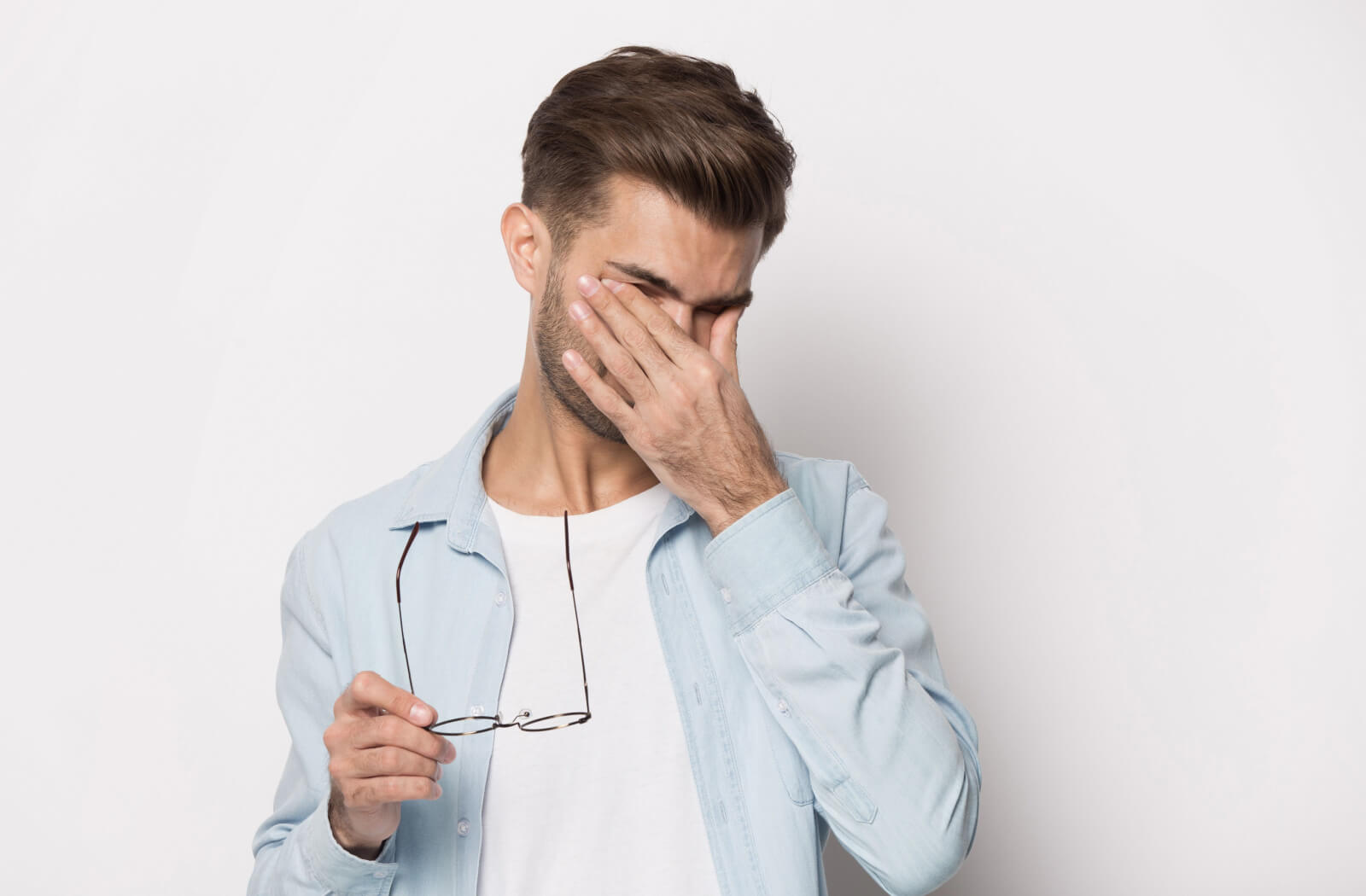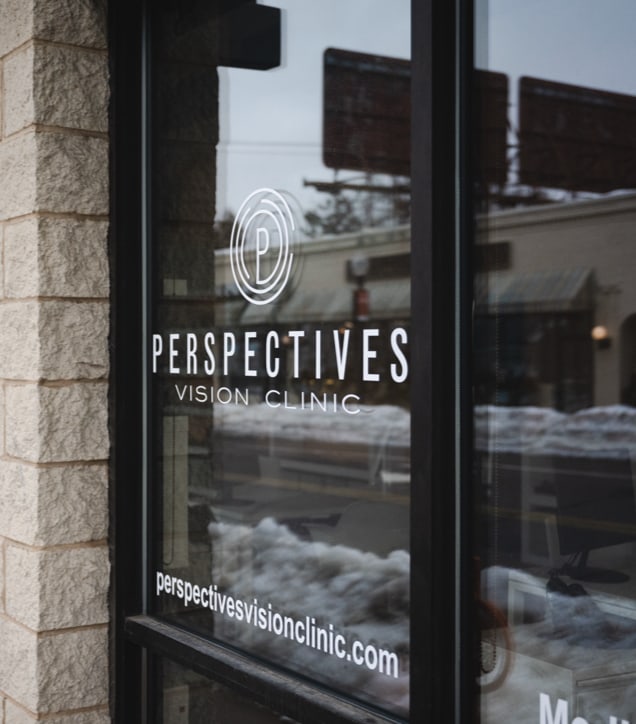It’s a misconception that those with dry eyes can’t wear contact lenses. In reality, people with dry eyes simply need the right type of contact lenses, properly fitted to your eyes. Practicing good contact lens care is also critical to relieving dry eye symptoms.
When the tear film isn’t moisturizing your eyes, you can develop irritating, uncomfortable symptoms. While having dry eyes can make contact lens wear more challenging, they’re not out of your reach.
A contact lens exam and fitting at Perspectives Vision Clinic can help you get the correct lens style to combat dry eye symptoms, not make them worse.
What Causes Dry Eye?
The surface of your eye is covered with a tear film, and when something’s wrong with its components, you can experience dry eye symptoms. The tear film has 3 layers:
- A thin oil layer on top
- A thick layer of protein and water in the middle
- A mucus layer on the bottom
Anything that destabilizes these ingredients can lead to dry eye. But how does your tear film react to contact lenses?
Do Contact Lenses Cause Dry Eye?
Dry eye is a common complaint among contact lens wearers. If you only have dry eyes during wear, you may be experiencing contact lens-induced dry eye. Contact lenses cover the cornea, which receives oxygen from the air to stay healthy and naturally lubricated.
While modern contact lenses are designed to allow oxygen to pass through the lens, some people may be sensitive to the reduced airflow.
Soft contact lenses can also absorb moisture in the eye like a sponge. Once out of the case and solution, they may feel hydrated initially, but they can begin to soak up the tears necessary to lubricate the eye after extended wear.

How to Reduce Dry Eyes from Contact Lenses
With the help of an eye doctor, you can find the best contact lenses for your eyes and some methods to help limit dry eye as you wear your contacts.
Find the Best Contact Lenses for Dry Eyes
Not every contact lens style or brand will fit everyone’s eyes. If you’re prone to developing dry eyes, some contact lens types and specific features can restore comfort and moisture to your eyes.
- Low water content: Contact lenses with high water content tend to dry out more quickly and draw moisture from your natural tears, while those with low water content need less water to stay hydrated.
- Replacement schedule: Changing your lenses more frequently can help prevent deposits and protein buildup that cause your eyes to feel drier. Daily disposables are believed to be the best replacement schedule for dry eye sufferers.
- A proper fitting: Poorly fitted contact lenses can cause inflammation and irritation, causing dry eye symptoms.
Your optometrist can help you achieve a comfortable fit and recommend brands that make contact lens wearing far more comfortable.
Check Your Contact Solution
You may have the right contact lenses but use the wrong solution to store them. Several different contact solution lines are available, some with varying levels of preservatives and others designed specifically for certain contact lenses.
Talk to your optometrist about your contact solution. It may be the culprit for your dry eyes.
Use Lubricating Eye Drops
Artificial tears can restore hydration, relieve irritating symptoms, soothe strained eyes, and increase your comfort throughout the day. If your eyes get dry while working on your computer or after you come inside from a windy day, lubricating eye drops can boost moisture when needed.
Keep in mind that not all eye drops are compatible with contacts. Before putting eye drops in your eyes with your contact lenses, check with your optometrist for contact lens-safe recommendations.
Practice Good Contact Lens Hygiene
The best ways to properly care for your contacts lenses include:
- Keeping a consistent eye exam schedule
- Not wearing your contact lenses too long
- Washing your hands before touching your eyes
- Gently rubbing and rinsing your lenses before storing them to remove buildup
- Keeping your contacts away from water
- Replacing your contact lens case every 3 months and keeping it clean by rinsing it with contact solution
You can follow the directions laid out by your optometrist to keep your contact lenses in good condition, prevent eye infections, and reduce dry eye symptoms.
Additional Tips for Managing Dry Eye with Contact Lenses
Beyond lens selection and proper care, a few lifestyle habits can help reduce dryness and keep your eyes more comfortable:
- Stay hydrated: Drink plenty of water throughout the day to support natural tear production.
- Use a humidifier: Adding moisture to the air, especially in dry climates or during winter, can help prevent your eyes from drying out.
- Take screen breaks: Follow the 20-20-20 rule—every 20 minutes, look 20 feet away for at least 20 seconds—to reduce digital eye strain.
- Protect your eyes: Wear sunglasses outdoors to shield your eyes from wind, dust, and UV rays that can worsen dryness.
- Follow your doctor’s recommendations: Your optometrist may suggest prescription eye drops, punctal plugs, or other treatments to help your eyes retain moisture.
Small changes to your environment and daily habits can make a big difference in your contact lens comfort.
You Can Still Wear Contacts with Dry Eye
If contact lenses make your eyes feel dry and gritty, you may need a different type of lens. With the help of your eye doctor, you don’t have to avoid contact lenses entirely, even if you have dry eyes.
Schedule a contact lens exam and fitting to find lenses to reduce dry eye symptoms while keeping your eyes hydrated and your vision crisp.
Key Takeaways
- Having dry eyes doesn’t mean you can’t wear contact lenses—you just need the right type and proper care.
- Contact lens-induced dryness is common but manageable with professional guidance.
- Low-water-content or daily disposable lenses are often best for dry eye sufferers.
- The right contact solution, lubricating eye drops, and consistent hygiene habits make a big difference.
- Simple lifestyle adjustments—like staying hydrated and taking screen breaks—can help keep your eyes more comfortable.
- Always consult your optometrist to find the most comfortable and healthy solution for your unique eyes.










